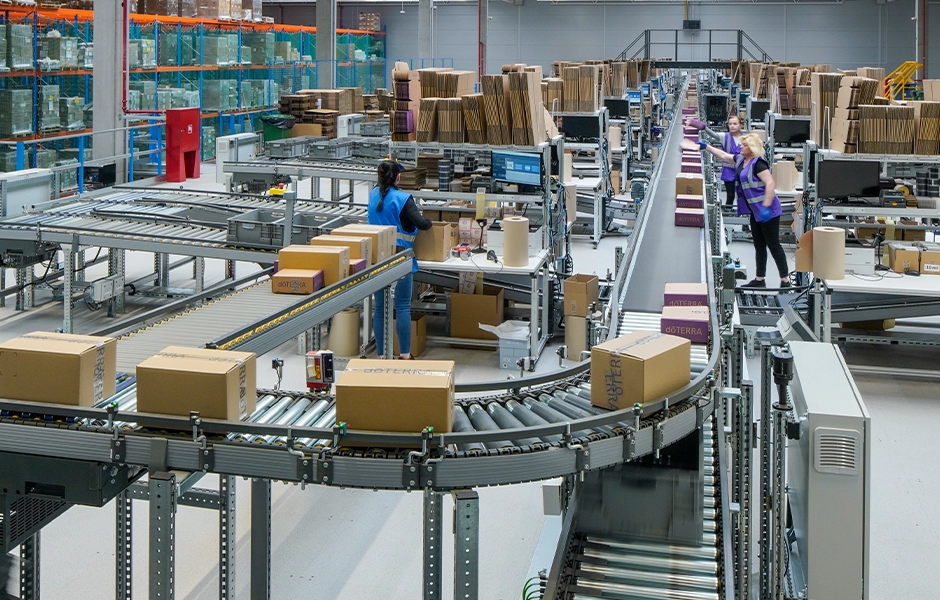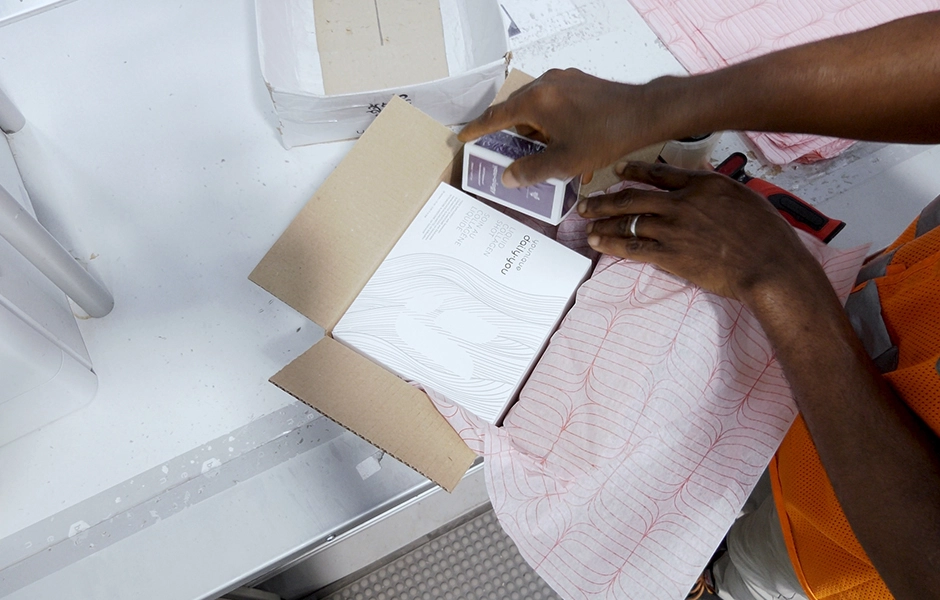The Impact of Sustainability on E-commerce Fulfillment Operations
Retail and e-commerce leave a heavy environmental footprint—but that’s starting to change. As consumers demand greener practices, fulfillment, a top emissions source, is now a key focus—and a big chance to make real impact.
Retail and e-commerce for many years have had a major impact on the environment through manufacturing, supply chain emissions, excessive packaging, and more. Aware of their impact, retailers know they can drive meaningful change. As consumer demand for sustainability grows, brands must act to earn trust and loyalty.
Retailers like Amazon and Walmart are leading among large retailers who have made climate pledges and are taking action to reach net zero carbon footprints. While e-commerce fulfillment is one of the largest areas that generates waste and carbon emissions, it is also an area where retailers have the most control. With a sharp rise in online shopping since the pandemic, retailers are doubling down on their sustainability initiatives.

Radial Europe, Warsaw Fulfillment Site, Poland
Do consumers really care?
Yes, they do. A recent study found that 60% of global consumers rank sustainability as an important purchase criterion, and 70% of US consumers say they will change brands if they discover the brand is not operating in a sustainable way. The word “sustainability” means different things to different people, but generally includes reducing waste, recycling, using eco-friendly materials, cutting greenhouse gas emissions, and using ethical labour practices.
Further, a 2021 IBM study found that 51% of consumers say they care more about sustainability than they did in the prior 12 months and nearly half are willing to pay 59% more for eco-friendly products. This consumer sentiment makes it clear that sustainability isn’t only good for the environment; it’s also good for business.
What’s important to consumers
Consumers care about retailers’ overall sustainability practices, but it’s the ones that directly impact shoppers that carry the most weight. Typically, this involves sustainable and recyclable packaging. In the US, cardboard boxes used for shipping packages account for one billion trees annually, demonstrating how just this one aspect alone affects the environment in a profound way.
And it’s not just cardboard. According to Statista, in 2019, the Chinese eCommerce industry produced about 488 million pounds of plastic packaging waste. That same year, the estimated worldwide amount of plastic packaging waste produced by e-commerce fulfillment activities surpassed two billion pounds. Statista predicts this amount will double by 2025.
Where can retailers drive change?
- Packaging. Many consumers will have received a small item in an oversized box packed with wasteful materials at some point. Since they’re left to dispose of it, packaging has become a key concern. Customers now expect smarter, more sustainable shipping—right-sized boxes, compostable materials, and eco-friendly packaging all shape the unboxing experience.
Customers expect orders to arrive intact, creating a challenge for brands to protect products while cutting packaging waste. Reusable packaging and partnerships with eco-focused manufacturers offer a smart path forward.
In addition, customers expect orders to arrive intact, creating a challenge for brands to protect products while cutting packaging waste. Reusable packaging and partnerships with eco-focused manufacturers offer a smart path forward.
- Transportation. Logistics drives a major share of retail’s carbon footprint. To cut emissions, retailers can consolidate shipments, use store fulfillment, and place fulfillment centers closer to customers. Combining deliveries with returns on the same trucks also helps. Radial’s parent, bpost, is boosting efficiency by using larger freight haulers to move 60% more packages per route.

- Fulfillment centers. Sustainable fulfillment covers warehousing, order processing, shipping, and returns. Fulfillment centers can cut waste by using automation, right-sized packaging, and order grouping. Cloud-based order management systems are key—they boost efficiency, give real-time inventory visibility, and help optimize routing to reduce waste.
- Supply chain alignment. Sustainable e-commerce fulfillment takes everyone working together with a common commitment to eco-friendly practices and reducing environmental impact. Retailers can exercise their responsibility by choosing suppliers, manufacturers, fulfillment partners, and shippers that align with their common values on environmental issues and agree on their power to make an impact.
Ensuring e-commerce fulfillment providers align with sustainability principles
E-commerce retailers that operate their own fulfillment centers have direct control over their eco-impact. However, for those that partner with third-party logistics providers, ensuring that these partners support and complement their sustainability practices is critical.
Fulfillment partners should demonstrate their own commitment to reducing environmental impact and work with retailers to align on initiatives (e.g., leveraging robotics and making sustainable packaging choices). Kitting and aggregating orders to reduce waste is also important. Fulfillment partners should also support retailers’ efforts to market their initiatives with information on packaging.
When choosing a fulfillment partner, retailers need to clearly outline their sustainability commitments and requirements, and make sure both companies are working in sync toward common goals. Together, they can reduce waste, decrease environmental harm, and meet customers’ expectations for more sustainable business practices.
Learn how Radial supports sustainability and delivers world-class e-commerce fulfillment.

